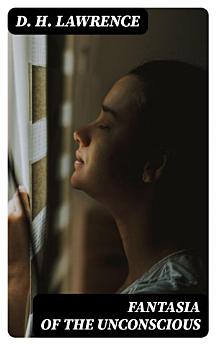Fantasia of the Unconscious
Sep 2022 · DigiCat
eBook
156
Halaman
family_home
Memenuhi syarat
info
reportRating dan ulasan tidak diverifikasi Pelajari Lebih Lanjut
Tentang eBook ini
In "Fantasia of the Unconscious," D. H. Lawrence delves into the intricate interplay between the conscious and unconscious realms, employing a contemplative literary style that combines autobiographical elements with philosophical musings. This work, rooted in the burgeoning psychological discourse of the early 20th century, articulates Lawrence's radical views on human instincts, sexuality, and the nature of creativity. Through vivid metaphors and poetic language, he explores how societal constraints stifle individual expression and the integral role of instinct in the pursuit of authenticity and fulfillment. D. H. Lawrence, a pivotal figure in modernist literature, experienced many influences—ranging from his working-class upbringing in industrial England to his tumultuous relationships—which informed his exploration of the self. His exposure to the works of Friedrich Nietzsche and Sigmund Freud instilled in him a profound curiosity about the human psyche and the societal constructs that bind it. "Fantasia of the Unconscious" stands as a critical articulation of his philosophical stance on the need for a deeper understanding of human desires and spiritual awakening. This thought-provoking book is recommended for readers seeking an intricate understanding of the dynamics of consciousness and artistic creation. Its fusion of psychological insight and lyrical prose invites a reflective journey into the depths of humanity, making it an essential read for those intrigued by the nexus of literature and psychology.
Tentang pengarang
David Herbert Lawrence, known as D. H. Lawrence (1885-1930), was an English writer regarded for his contribution to the modernist literary movement. Born in the coal mining town of Eastwood, Nottinghamshire, Lawrence explored human psychology and the profound effects of industrialization on society. Educated at Nottingham High School and later at University College, Nottingham, Lawrence's experiences fostered a deep connection with the natural world, juxtaposed against the mechanized age, which became a recurrent theme in his works. He is widely recognized for his novels which probe the complexities of the human condition and relationships, including the controversial 'Lady Chatterley's Lover' (1928), and 'Sons and Lovers' (1913), reflecting his own experiences in a semi-autobiographical manner. His literary style often embraced a frank portrayal of sexuality and emotional health, challenging early 20th-century taboos and societal norms, subsequently leading to censorship battles. The non-fiction piece 'Fantasia of the Unconscious' (1922) is a notable text that delves into Lawrence's views on psychoanalysis, education, and society. Rather than focusing on the Freudian emphasis on sexual motivation, Lawrence offered his thoughts on the spiritual and instinctual aspects of the subconscious. Lawrence's innovative narrative techniques and his vivid exploration of internal and external landscapes have entrenched his status as a significant literary figure whose works continue to incite discussion and analysis.
Beri rating eBook ini
Sampaikan pendapat Anda.
Informasi bacaan
Smartphone dan tablet
Instal aplikasi Google Play Buku untuk Android dan iPad/iPhone. Aplikasi akan disinkronkan secara otomatis dengan akun Anda dan dapat diakses secara online maupun offline di mana saja.
Laptop dan komputer
Anda dapat mendengarkan buku audio yang dibeli di Google Play menggunakan browser web komputer.
eReader dan perangkat lainnya
Untuk membaca di perangkat e-ink seperti Kobo eReaders, Anda perlu mendownload file dan mentransfernya ke perangkat Anda. Ikuti petunjuk Pusat bantuan yang mendetail untuk mentransfer file ke eReaders yang didukung.








